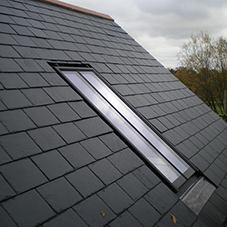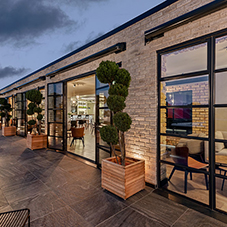With the recent energy price rises and a second hike expected to take effect this autumn, it’s no wonder individuals across the UK are looking for ways to increase the energy efficiency of their homes and avoid incurring increased costs.
Windows and doors can be among the most common causes of poor temperature control within a home, especially if they’re not double glazed.
The benefits of double glazed windows go beyond money saving, improving the comfort of your home through temperature control noise-proofing. But what actually makes double glazing so effective?
Double glazing explained
Many people aren’t aware that double glazing means windows are fitted with two panes of glass separated by a layer of trapped gas in between. So how does it work and what difference will this make to the energy efficiency of your property?
Gases used can include krypton and argon, neither of which are harmful, but they are poor conductors of heat meaning warm air is kept inside your home leading to improved thermal and energy efficiency in your home.
The additional pane of glass in double glazing can also act as an extra barrier against noise and increase the strength of the window, further improving security.
Double glazing gases explained
Clement use both krypton and argon gases in the manufacturing of their bespoke steel double glazed windows.
Krypton and argon gases are both great for increasing the energy efficiency of double glazed windows, because they are heavier than air and they are poor thermal conductors that slow down and can even stop energy from traveling through them.
Argon is almost six times denser than air, while krypton is 12 times denser. Both are popular solutions for improved energy efficiency, but the density of krypton makes it a more costly option.
Window energy ratings explained
When shopping for new windows, an important thing to bear in mind is the Window Energy Rating (WER). To comply with Building Regulations, all new windows should be C-rated or above. This is calculated by several variables, including:
• Thermal transmittance (U value) – This measures how much heat can escape through the glass in Kilowatt-hours, per sq meter each year.
• Solar factor (G value) – This measures how much solar energy is gained through your windows from the sun in Kilowatt-hours, per sq meter each year.
• Air leakage (L value) – This measures the air leakage (which should be minimal, in Kilowatt-hours, per sq meter each year.
Condensation and double glazing explained
The air we breathe is full of small droplets of water that are invisible to the naked eye. As the air molecules cool they come together, forming visible liquid known as the ‘dew point’ or condensation.
Condensation forms most when air comes into contact with a cold surface, for example, a window pane.
By opting for double glazed windows, you should see a reduction in condensation as the gases between the panes of glass do not contain moisture. However, if you are noticing a build-up of condensation forming in between the panes of glass in your double glazing, there could be a fault with the sealed unit.
Even the smallest hole can affect the efficiency of your windows, increasing the chances of moisture build-up. Clement would recommend getting in touch with them if you are noticing condensation in your double glazed units.
Clement's double glazed ranges
Clement’s EB20 range is exceptionally slim (20mm insulated glass units) and comes as standard with krypton gas, achieving a B Window Energy Rating, as well as being part L compliant.
Additionally, the low-maintenance EB24 range is available with argon gas filling and can equally achieve a B or a C rating. Another slim option (24mm insulated glass units) and part L compliant, most of Clement’s units are available with bespoke measurements to suit your needs.
When double glazing is not possible
Of course many Conservation Officers will not approve double glazing for many sensitive heritage and refurbishment projects. Where this is the case Clement can offer various window ranges which have been created specifically for use in fenestration projects where double glazing is not an option.
To find out more about our double glazed window options, get in touch.
The benefits of double glazed steel windows
| T | (01428) 643393 |
|---|---|
| E | info@clementwg.co.uk |
| W | Visit Clement Windows Group's website |
| Clement House, Weydown Industrial Estate, Haslemere, Surrey, GU27 1HR |
Products by this Company





